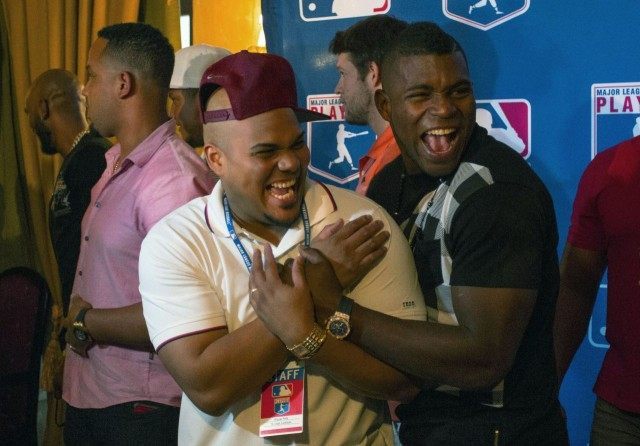Now that Barack Obama has opened relations with Cuba, his White House wants to defy the U.S. trade embargo held in place by the Congress and permit Major League Baseball to sign Cuban players living on the island.
The White House approves of MLB’s request,” a senior administration official told Reuters, “Indeed, baseball has a unique cultural significance to both the United States and Cuba. It is therefore an area where we can further our goals of charting a new course in our relations with Cuba and further engaging and empowering the Cuban people.”
MLB asked the Treasury Department’s Office of Foreign Assets Control (OFAC), which has the power to effect the deal, for a license back in June, even though the trade embargo attempts to ban MLB from any agreement directing money to the Cuban government. If players are allowed to sign with MLB and come to America, they would pay taxes to Cuba; the country would likely receive compensation for player rights.
OFAC Acting Director John E. Smith passed the buck, stating that his office “acts in consultation with the State Department and other relevant U.S. government agencies in determining whether (authorizing transactions) would be consistent with current policy.”
Many Cuban players, eager to escape the Cuban communist regime, have defected to the United States using any means available; Cuban journalists estimate 130 players defected in 2015. The best players, guarded zealously by the Cuban government, depend on smugglers, who often demand huge sums of money for their efforts. Organized crime has often forced players to offer huge percentages of their future earnings.
Seattle Mariners outfielder Leonys Martin’s odyssey included capture by Mexicans who held him for months; he promised them 5% of his earnings but won the suit they filed once he came to America. Los Angeles Dodgers star Yasiel Puig was threatened by the vicious Zetas crime organization with the loss of his arm if he didn’t pay them $250,000.
The Cuban league Serie Nacional wants to become similar to the Mexican League, selling players to MLB in the same fashion that the Japanese NPB league does, where a team sets a “release fee,” allowing MLB teams to negotiate with the player. The team signing the player would then pay the release fee to the Cuban team.
Higinio Velez, president of the Cuban Baseball Federation, enthused to Reuters that allowing stars like Jose Abreu and Puig to return and visit their families in December had helped open doors: “This demonstrates that Cuba is open to the world, that we are not closed, not even with our players who are playing in MLB.”
A total of 184 players from Cuba have played in MLB; 95 since the U.S. imposed sanctions in 1961.

COMMENTS
Please let us know if you're having issues with commenting.